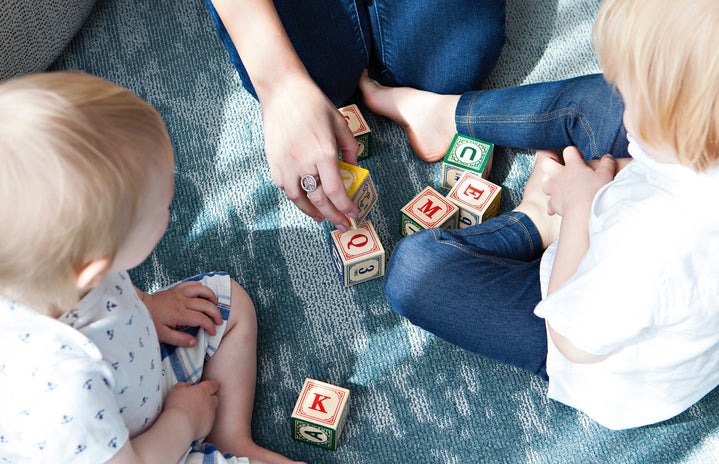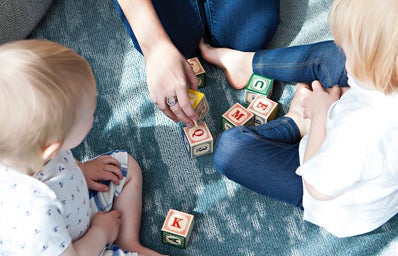The most classic and most frequent reveal I’ve seen is when colored smoke or dust comes through a creative vessel. If the smoke is pink, it’s a girl and if the smoke is blue, then it’s a boy. There’s also popping balloons that reveal the gender through the assigned-color confetti on the inside; there’s colored inner icing on cakes, and even the breaking of eggs; you have a group of pink and blue colored eggs, you break them one by one until the one with the yolk is cracked and the gender of the baby is exposed.
Once the revelation is made, the celebration begins, with the exception of perhaps children that cry and become completely rude, but there’s no need to worry because they make the filming funny and Instagram or Youtube worthy.
“It’s a boy!” or “It’s a girl!”, the necessity of knowing the sex of the baby before it arrives is a highly questionable urge that most expecting couples have. The question to why finding out what sex the baby is actually has nothing to do with the sex, but with gender. Perhaps couples that submit to these expensive genders reveal parties haven’t really internalized the real problematic meaning of these types of festivities.
Firstly, it’s crucial to state that gender is not a synonym of sex. Sex is determined by a doctor’s diagnosis based on the baby’s genitalia. Children are categorized as male if they have a penis or as female if they have a vagina. Gender, however, is determined by society’s perception of sex. Psychologist Robert Stoller was the first to distinguish between the terms gender and sex. According to Stoller the word gender describes how much feminine and masculine behavior an individual displays and the word sex describes the biological characteristics of a person.
Feminist philosopher, Mari Mikkola gives a similar definition: gender is dependent on social factors such as social roles, position, behavior, and identity, and sex denotes the biological characteristics of someone’s body. However, it gets complicated. Feminist theorist, Judith Butler, suggests that “sex is as culturally constructed as gender” and concludes that if that is the case, then gender and sex are the same. Culturally, it’s understood that everyone should either be of male or female sex; that these two sexes are the only ones that exist.
Intersex bare operated on, without their consent, to make them fit into toxic social molds of strict male and female categories. Likewise, there are people who are transgender who undergoe gender reassignment surgery to combat gender dysphoria or to affirm their gender on a physical level. Interestingly enough, this approach to sex, makes us question whether gender should even be dependent on the sex of the person in the first place…
In other words, gender and sex are not necessarily constructed by people, Butler says, it might be the people who are being constructed instead; and this occurs even before they are born. That’s why parents become eager to know the sex of the child before its arrival. Why is it so necessary to know the sex of the child? The mix of subconscious and conscious social expectations makes parents want to know the baby’s biological sex which will, in turn, determine the baby’s gender. That’s basically why they’re called gender reveal parties.
When the baby’s “gender” is announced, gender norms start to get reinforced. For instance, assigned gender is indicative of what clothes and gifts to buy for the baby shower. Again, this means that the gender of the child is being completely constructed and assigned before the child arrives. It accomplishes nothing more than inflating a prescribed definition of gender as well as reinforcing stereotypes before a family even begins to see who the baby actually is as a person.
Author Charise Rohm Nulsen expresses that as a parent, you should let the child discover who they are on their own, without a set of expectations for them, before arriving to the world. It cannot possibly be known what the child’s gender is before they’re born. It can only be known the sex of the baby, and that does not definitively indicate anything.
Although what Rohm Nulsen says is true, that as parents one should try to raise a gender-neutral child, however, it’s not necessarily just the parents’ responsibility. There will be many influential adults that will interact with the child and impose these gender notions upon them. In effect, it is important to expose the problem of gender dynamics. How its effects impact children and in effect mark their psychological development towards their adulthood.
We should reflect on these socially imposed celebrations. For some parents, especially those who don’t have the privilege to do so, it may be difficult to raise gender-neutral children. The next best thing they can do is to be conscious of what they’re children like and prefer. They shouldn’t try to force things like pink and blue or dolls and cars. They should have a constructive approach to raising their kids.
Next time someone close is expecting a baby and wants to throw a gender reveal party, reflect upon what’s really being celebrated: the arrival of a human being, or systematic oppression?
It is a personal responsibility to educate within a gender-neutral or not-gender-at-all basis. It becomes an extremely difficult task since our immediate culture consistently revolves around gender. There’s an uncertainty concerning if not conforming to gender roles means the end of gender itself; we don’t know. However, understanding that things don’t need to be the way we’re used to perceiving them is the beginning of reasoning gender dynamics.
So, if you’re ever expecting or someone you know is and surges the question: “Is it a boy or a girl?”, the answer should be: “They’re whatever they want to be.”


